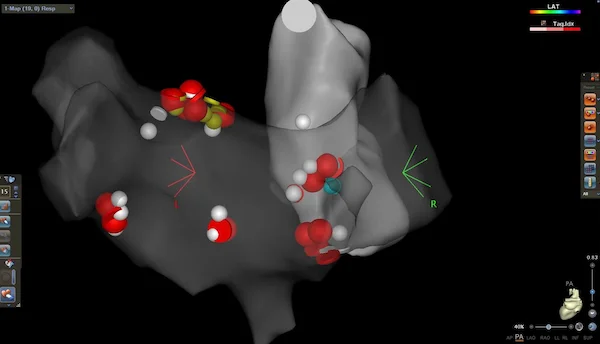Regular and balanced nutrition is as important as medication in maintaining heart health. A dietary regimen for a healthy heart encompasses not just what we eat, but how and how much we eat.
Cardiovascular diseases are one of the most significant health problems today, and proper dietary habits play a critical role in preventing these diseases.
What Foods Make Up a Heart Healthy Diet?
How Does the Mediterranean Diet Support Heart Health?
The Mediterranean diet style is one of the ideal nutrition models for heart health. Olive oil, fish, vegetables and fruits, whole grains, nuts, and legumes form the foundation of this diet. Olive oil helps lower bad cholesterol while raising good cholesterol thanks to its monounsaturated fatty acids.
Fatty fish rich in omega-3 fatty acids (salmon, mackerel, anchovies, sardines) play an important role in preventing arrhythmias and reducing heart attack risk. Consuming fish at least twice a week is recommended to support heart health.
Which Vegetables and Fruits Are Heart-Friendly?
Fruits and vegetables protect heart health through their antioxidant content. Especially dark green leafy vegetables (spinach, chard, broccoli), orange and red fruits (oranges, grapefruit, tomatoes), and purple fruits (grapes, blueberries, blackberries) have strong antioxidant properties.
The antioxidants in these foods prevent arterial hardening and help regulate blood pressure. It’s important to consume various vegetables and fruits daily for heart health.
Which Whole Grains Are Ideal for Heart Health?
Whole grains, including oats, quinoa, and buckwheat, are important foods that contribute to heart health. These foods have higher fiber content compared to processed grains.
Whole grains and fibrous foods balance cholesterol levels and support heart health. Daily fiber intake for adults should be 25-30 grams. They also help with weight control by providing a feeling of fullness.
Which Nuts Should Be Preferred for Heart Health?
Nuts such as walnuts, almonds, hazelnuts, and pumpkin seeds support heart health thanks to their healthy fats and protein content. Walnuts, in particular, stand out with their high omega-3 content.
Due to nuts’ high caloric content, daily consumption amounts should be monitored. One handful of nuts per day is an ideal consumption amount.
The Role of Potassium, Magnesium, and Calcium in Heart Health
Potassium, magnesium, and calcium are critically important for heart health. Foods rich in potassium such as bananas, potatoes, and tomatoes help regulate blood pressure. Magnesium, found in dark green vegetables, almonds, and pumpkin seeds, contributes to heart rhythm regulation.
The Effect of Vitamin D on Heart Health
Vitamin D has a significant impact on heart health. Its deficiency can increase the risk of heart disease. Sunlight is important as a source of vitamin D, but supplementation may be necessary.
Foods Harmful to Heart Health
Trans fats and processed foods negatively affect heart health. Consumption of processed meat products, ready-made snacks, and sugary drinks should be limited in particular. Daily salt consumption should be kept below 5 grams. Consumption of sugary drinks and foods high in sugar should also be limited.
How Much Water Should Be Drunk Daily for Heart Health
Adequate water consumption helps the heart work more efficiently by ensuring blood fluidity. Drinking 2-2.5 liters of water daily is recommended. Water needs may vary based on personal factors.
The Effect of Caffeine and Alcohol on Heart Health
Excessive consumption of caffeinated beverages should be avoided, and alcohol should be consumed in moderation. This helps your heart work more healthily.
How to Create a Heart Friendly Diet Plan?
Consuming at least 5 portions of vegetables and fruits daily is recommended to support heart health. This can be 3 portions of vegetables and 2 portions of fruit.
Eating fish at least twice a week and preferring unprocessed whole grains supports heart health.
Choosing healthy fats like olive oil and limiting salt consumption is important for heart health. Additionally, portion control should be considered.
Reference: A Heart-Healthy Diet for Cardiovascular Disease Prevention






